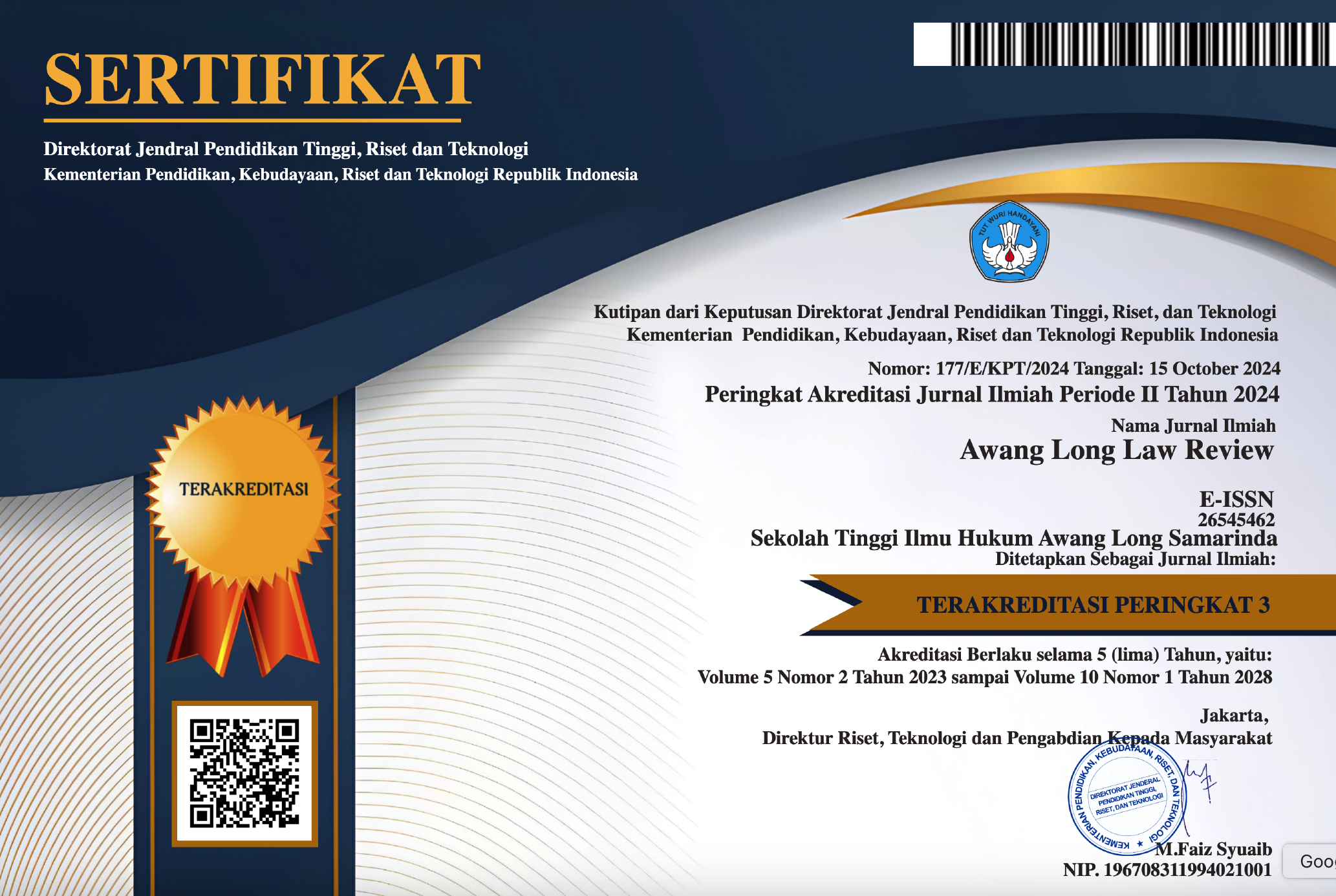CARBON TAX AND ITS EFFECT ON THE ECONOMY, TAXES AND ENVIRONMENT
Abstract
This research discusses theoretically the relationship between carbon tax with economy, tax and environment. This research is a legal research with analytical descriptive nature, namely research that analyzes secondary data on issues related to carbon taxes as an instrument for reducing carbon dioxide emissions. According to secondary data, this research is aimed at discovering aspects of carbon tax design, collection of carbon taxes, and state management of carbon tax revenues. Carbon taxes are an effective and efficient instrument to support the reduction of carbon dioxide emissions. To be implemented, a carbon tax must be feasible. Eligibility requires public acceptance. On the other hand, a carbon tax can create a lot of controversy. The main argument against carbon taxes is that carbon taxes do not always guarantee emission reductions. In addition, there are also concerns over the unintended effects of competitiveness, carbon leakage, and fears of unintended distributional impacts, which could be barriers to implementation.
Downloads
References
Bank, W. (2011). A guide to the World Bank. The World Bank. University Press
Baumol, W. J., & Oates, W. E. (1988). The theory of environmental policy. Cambridge university press.
Bertram, C., Luderer, G., Pietzcker, R. C., Schmid, E., Kriegler, E., & Edenhofer, O. (2015). Complementing carbon prices with technology policies to keep climate targets within reach. Nature Climate Change, 5(3), 235–239.
Carbone, J. C., Morgenstern, R. D., Williams III, R. C., & Burtraw, D. (2013). Deficit reduction and carbon taxes: Budgetary, economic, and distributional impacts. Resources for the Future.
Clark, R., & Dolan, L. R. (2021). Pleasing the principal: US influence in World Bank policymaking. American Journal of Political Science, 65(1), 36–51.
Coase, R. H. (1960). The problem of social cost. The Journal of Law and Economics, 3, 1–44.
Kriegler, E., Riahi, K., Bosetti, V., Capros, P., Petermann, N., van Vuuren, D. P., Weyant, J. P., & Edenhofer, O. (2015). Introduction to the AMPERE model intercomparison studies on the economics of climate stabilization. Technological Forecasting and Social Change, 90(Part A), 1–7.
Lucas Jr, G. M. (2017). Behavioral public choice and the carbon tax. Utah L. Rev., 115.
Malpass, D. (2021). World Bank Group Press Conference at the 2021 Spring Meetings, April 7, 2021.
Mankiw, N. G. (2013). A carbon tax that America could live with. New York Times, 2.
Masson-Delmotte, V. (2018). Global warming of 1.5° c: An IPCC Special Report on impacts of global warming of 1.5° c above pre-industrial levels and related global greenhouse gas emission pathways, in the contex of strengthening the global response to the thereat of blimate change, sustainable development, and efforts to eradicate poverty. (No Title).
Metcalf, Gilbert E. (2007). A proposal for a US carbon tax swap: An equitable tax reform to address global climate change. Brookings Institution.
Metcalf, Gillbert E, & Weisbach, D. (2009). The design of a carbon tax. Harv. Envtl. L. Rev., 33, 499.
Morris, A., & Mathur, A. (2015). THE DISTRIBUTIONAL BURDEN OF A CARBON TAX. ‘Government Debt and Global Climate Change Are Two of the Great Problems of Our Time. Carbon Taxation Uniquely Has the Potential to Address Both. But as Always the Devil Is in the Details. This Important Volume Is Lucid, Comprehensive and Acute on All the Issues Bearing on the Decision to Implement Carbon Taxes. It Will Be an Essential Resource in the Debates to Come.,’ 97.
Newell, P., & Paterson, M. (2010). Climate capitalism: global warming and the transformation of the global economy. Cambridge University Press.
Shelanski, H., & Shelanski, D. A. (2014). Social Cost of Carbon for Regulatory Impact Analysis Under Executive Order No. 12866 Docket ID OMB–OMB–2013–0007 Via electronic delivery to www. regulations. gov.
Copyright (c) 2023 Maria Emelia Retno Kadarukmi

This work is licensed under a Creative Commons Attribution-ShareAlike 4.0 International License.







